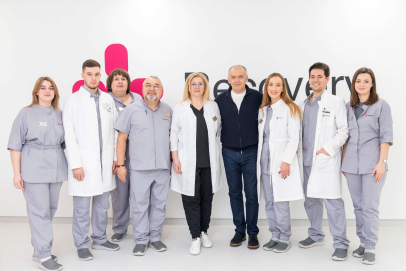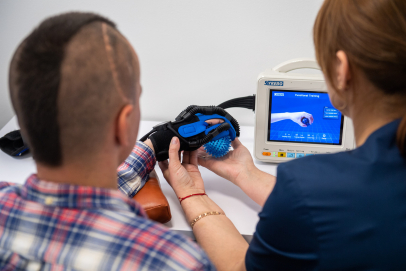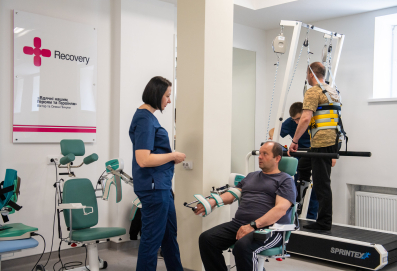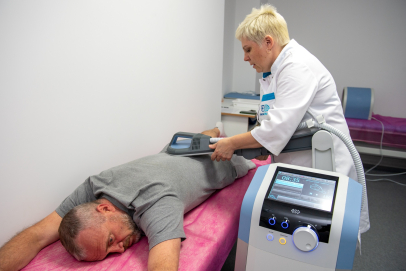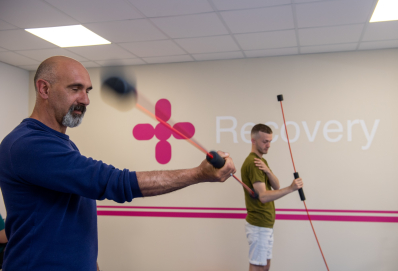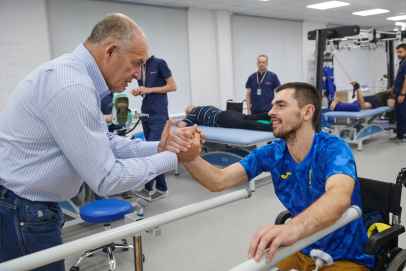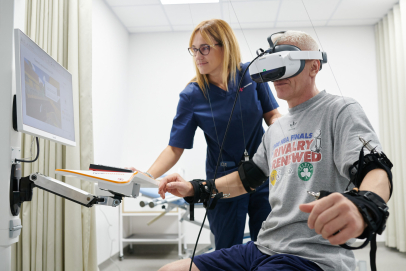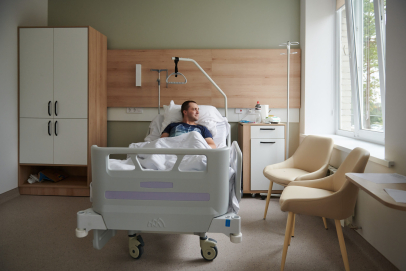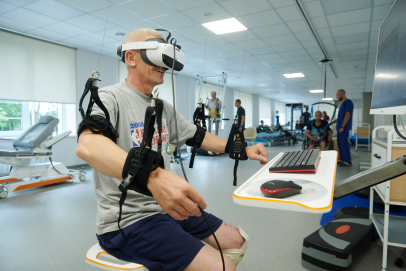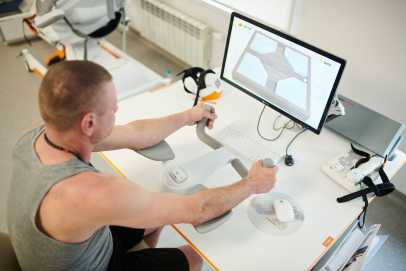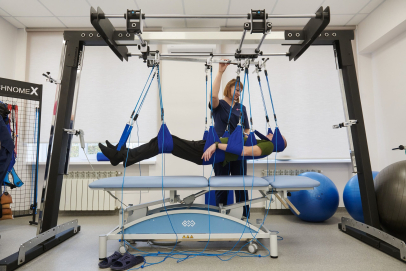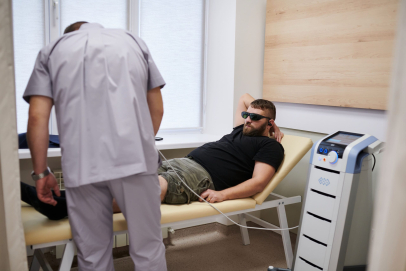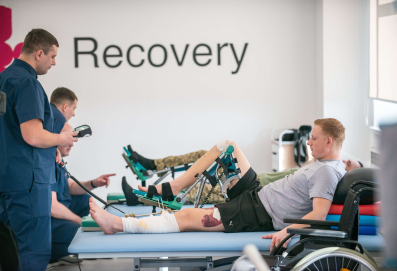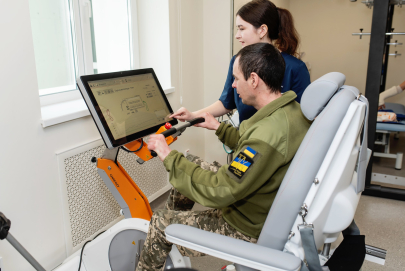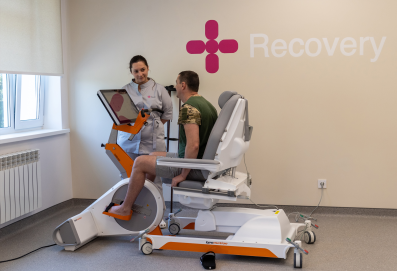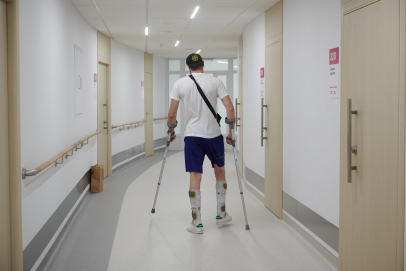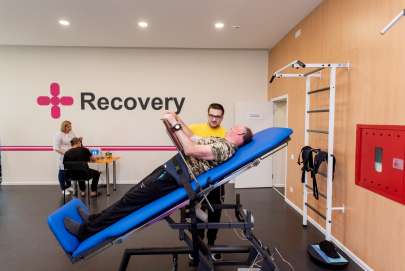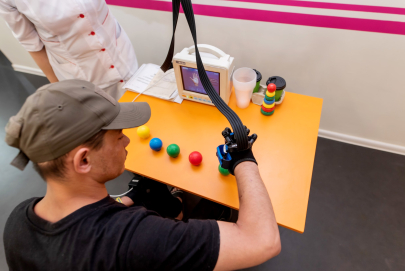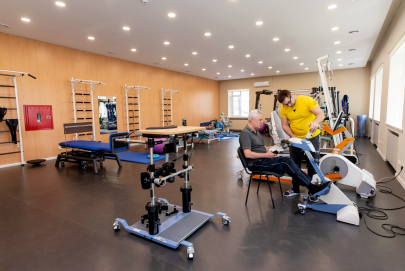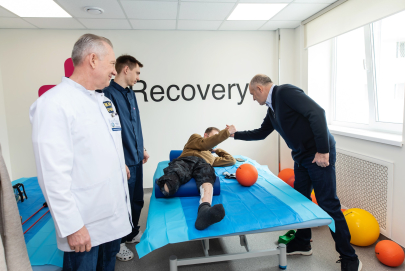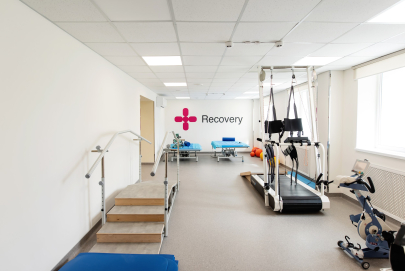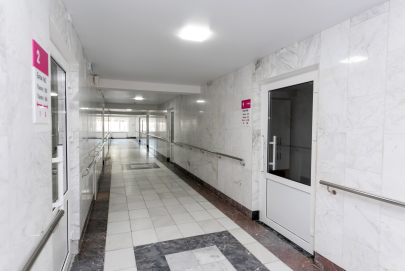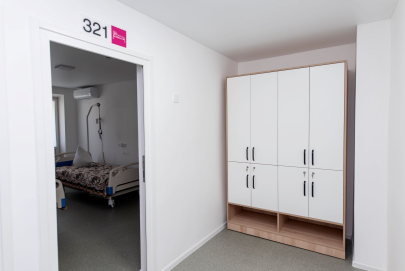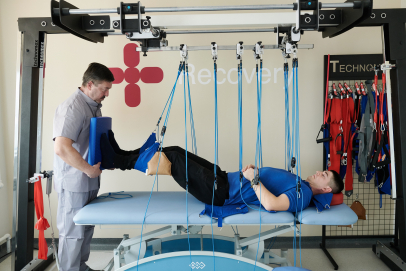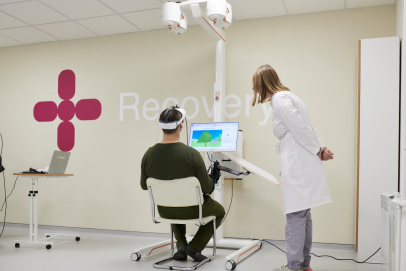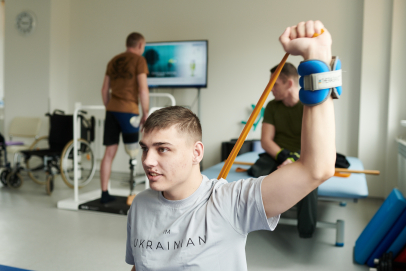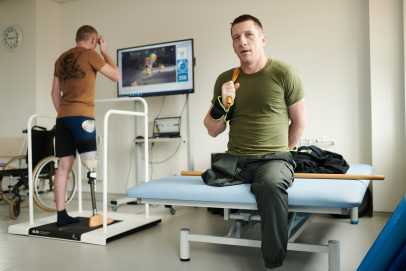Press about us
Aleksandr Rozhen, (Kiev-Dniepropetrovsk-Gostomel)
The birth of the Fund ZAVTRA.UA (Tomorrow.UA), then identification of the contest winners who were scholars of this fund, which had been lasting nearly for a year, did not produce any advertising noise. And this is surprising because pomposity accompanying advertising campaigns devoted to the least significant social activities is an inseparable attribute of our current being. It was only when all the preparation activities were over and winners selected, that the press and television were attending the ceremony of awarding 201 scholarships (each equalling 500 hryvnias a month for university students).
These celebrations were attended by Heidemarie Stefanyshyn-Piper, the first NASA astronaut of Ukrainian origin who came in from the USA. She was assisted by a Ukrainian astronaut, Leonid Kadenyuk, and the Brazilian writer Paulo Coelho. The atmosphere prevailing in the Gostomel aeroplane hangar gave an involuntary hint to the fact that at that very moment and at that very place there was an event happening, which was to arouse new strength in the Ukrainian industrial revival campaign, and that these young people who shook hands with and listened to warm greetings from such famous guests, were to create new technological wizardries able to prove to all that this country still has genial engineers and scientists.
Scholarships were awarded to students from 12 Ukrainian universities. As stated by the Fund establisher, this had just paved the way to a bigger programme. A reporter from "Zerkalo Nedeli" visited a university where the students successfully participated in the contest - the National Mining University (NMU, Dniepropetrovsk), to get an idea of the role of such events in brining the Ukrainian education system into line with the international standards.
"The Ukrainian industry has been experiencing an obvious animation in the last few years," said Gennadiy Pivniak, the University Rector and Academician of the National Science Academy of Ukraine. Therefore an interest has increased sharply in comprehensively educated young specialists. The creation of the Fund ZAVTRA.UA by Victor Pinchuk is undoubted evidence that the country's most clear-sighted people have realised the importance of high-quality education for Ukraine's development.
It's clear that geniuses or outstanding top managers cannot be made by serial production, but rather by cooperation with businesses, which helps the institution to award best students with special scholarships, overseas training trips, and, in turn, additional impetus to study."
"Gennadiy Grigorievich, it's not a secret that the level of school leavers keeps deteriorating. How do you ensure necessary contingent for your institution?"
"The NMU realizes that if the institution does not develop an algorithm searching for talented entrants, we will be soon pressed out of the higher education market. Young people in provincial towns tend to be hard-working and keen on achieving good results, Therefore they are more often better prepared and oriented. I'd like to name especially our entrants from Zheltyie Vody, Pavlograd and Donbass. They have traditions typical of their region. They are adopted from their parents who work in various industries. These students are more sensitive to innovations designed to improve working environment. We have been accepting guys from these regions for several years already. They are obviously ahead of those from Dnipropetrovsk in their academic progress. As an example, among the winners of ZAVTRA.UA contest there are Nikita Sokolovskyi and Sergeyi Smoliak who are coming from Dobropolie, Konstanin Kravchenko and Sergey Kozlov coming from Pavlograd. It's important that the students are ready to help in a difficult moment. We felt that when the boiler-houses broke this winter. The guys showed understanding of these difficulties. Now we are arranging the hostels to have their individual boiler-houses to avoid trying our students' patience.
So, the tendency toward searching students-to-be is very promising in the province - testing entrants in different towns permits selecting talented people who could have been left in the cold otherwise. The matter is that there are many socially vulnerable people among the youth living in provincial towns. It happens sometimes they cannot afford to buy a ticket to get to the examination place. Therefore we need a talent-searching system in small towns and villages. Only this system will set them up in life.
However, selecting makes half the work. We need a system to support gifted young people during their years at the University - this is what programme ZAVTRA.UA aims at. A similar campaign is needed for those who have made good academic progress but who experience difficulties that may prevent from becoming a scientist after the graduation. To help them, we created the "We are Thirty" programme. It is designed to support young researchers in their profound training in fundamental special branches of science. The programme involves about 70 young PhDs. It also pursues purely pragmatic interest - if young scientists work for innovation projects, they will not be solely depending on state financing and will be able to bring grants to universities. We intentionally take lessons of management from this approach.
We are not only following the way of selecting talents but are also trying to bring up such entrants for our University. Therefore a lycee school was established at the NMU 10 years ago. Lycee students are trained by professors from the Mining University - this educational institution provides solid physical and mathematical basis with good command of foreign languages. Eighty percent of lycee leavers enter our institution. By the way, the lycee provides education that allows the University to take part in programmes offered by private businesses."
"The Bologna process sets an objective that universities would teach their students with the use their most up-to-date equipment, which is, probably, unlikely to be found in industry. Such procurements require much expense. How will you cope with this task?"
"That's correct, we cannot afford that, that's why we and our German colleagues organised training and scientific laboratories enabling qualitative implementation of necessary works on German equipment with the use of the Internet. Of course, this is only a temporary way out. We have to purchase the most modern equipment with regards to the needs of businesses. The students should work on it literally starting from their second year. The way out is arranging training-scientific-industrial complexes that just give us a hope for the achievement of such difficult goals. We immensely treasure University's reputation and consequently promote the development looking up to the level of a research university. However, we are not so far competent in what is related to scientific business activities. We pin our great hopes on cooperation with universities of Germany, the USA, Poland, Great Britain, France and Spain. We are happy with the fact that businesses with possible solid investment have already believed in us and such programme has started form the beginning of this academic year."
"Since the state released itself from any responsibilities to find vacancies for graduates of Ukrainian higher education institutions, they had been looking for a job on their own. However, employers are no longer happy with the previous criterion that provided for just filling a vacancy. Employers are keen on obtaining results. And..."
"And that is why some industries are already in search of the most skilful specialists. Salaries of many of them reached such levels that may arouse envy even in their western colleagues. Owing to this, the former indifference of higher education institutions for the employment of their graduates starts being replaced with quite a different behaviour. A salary of a graduate, which private businesses are ready to offer him, becomes the highest grade for the education level at a particular institution.
The most clear-sighted businesspeople have already started searching for ways to train talented and highly professional engineers and managers for their businesses. The first proposals of such type were, probably, shared with us by "Vesta" International Scientific and Industrial Corporation (headed by president Viktor Dzenzerskyi) and "Dniepropetrovsk-Based Engineering Plant" State Holding Company (headed by Director General Mikhail Filkin). Those are well-known advanced enterprises of the country, which produce accumulators that, as a result of joint work, are exported to six European countries. The Ukrainian companies purchased up-to-date technologies, made a number of improvements, used the newest materials and elemental base and technologies and are already involved in working out projects of the future, specifically, creating accumulators for electromobiles and renewable energy sources. However, to implement this, the companies need specialists with a good engineering thinking, and the company management forms up to 40% of our curriculum for target training of students to meet its vision of further development of this trend.
Analysis of projects that can be sensed in the air today has led NMU administration to an idea of establishing training-scientific-industrial complexes with participation of rather powerful industrial corporations. One of them was formed at the "Vesta" corporation, the Dniepropetrovsk-Based Engineering Plant, Designers' Office "Dnieprovskoie" and our University. The implementation of the idea of target training for young management staff to work for these advanced, rapidly growing enterprises proved very fruitful. Our first training-scientific-industrial complex was named "Energia".
We have just started out. The first advent of students trained according to such curriculum numbers about 50 persons. They are future specialists in information technology, telecommunications, electric power engineering and automated electric drive and economics who have, in addition, compulsory knowledge of a foreign language and sometimes of several foreign languages. This purpose is being met by five linguistic centres working at the University, which have been already recognised, the British Council, Goethe Institute... By the way, our University is the only technical institution with whom Goethe Institute is cooperating. Besides, we have the Oles Honchar Culture Center of the Ukrainian Language, the Institute for Humanities Problems, and there is the Dniepropetrovsk-based Regional Branch of the Cossacks Institute of the History Institute of the Ukrainian National Science Academy. As a matter of fact, young people are interested in all these things, which enables their up-bringing according to the traditions of the Ukrainian state nationalism. Of course, this is not typical of a technical education institution but we are sure that the humanitarian component increases creativity, develops innovative thinking and, subsequently, competitive power of our graduates."
"Gennadiy Grigorievich, because you represent the National Mining University, it naturally entails a question: why don't you set priorities in organising similar breakthrough trends related, for example, to coal engineering?"
"We did it! With regards to the development prospects of the coal industry, we created a training-scientific-industrial complex "Coal" based on the powerful colliery "Mine Krasnoarmeiskaia-Zapadnaia No.1" This is a modern competitive company on the world market. It works in cooperation with power engineering and metallurgy specialists for the creation of a finished product. This list also includes design institute "Dongiprouglemash", the Ukrainian Institute for Mining and Flame-Proof Equipment (Donetsk) and "Donetskshakhtoprokhodka" trust company.
A similar complex was formed in the engineering industry as well. It is necessitated by a rather significant engineering branch that was developed in Dnipropetrovsk. We have a relevant department, modern expert-training methodologies and a scientific and innovative follow-up that will be provided by these companies. An important thing is that businesses begin to realise the importance of application of scientific achievements. The Mining University gave birth to many scientific schools. It will be enough to mention world famous names, such as Terpigoriev, Dinnik, Pisarzhevskyi. The University developed many interesting scientific trends that, by the way, were given repeated attention in "Zerkalo Nedeli". Mines are moving away from hard labour at the expense of new technology. For instance, our University jointly with the Institute for Coal Technologies of the Ukrainian National Science Academy, develops state-of-the-art technologies for environment-friendly use of coal. Now many technical products of the Ukrainian mining industry - both passage and cleansing equipment - exceed the best samples of the world. I am positive that we are facing a period of scientific boom and application of scientific achievements in practice. But this is already another subject...
With all the above-mentioned projects ongoing, we also are developing our traditional departments - those of geophysics, development and treatment of subsoil resources, of mining construction and geomechanics. They preserve very solid scientific and academic potential. It's important that those departments keep a steadily large competition among entrants. Thus, even the mining department has a competition of six persons per one seat. This is explained by the emergence of powerful coal companies in the last few years, which are successfully developing under conditions of new economic patterns. By the way, our participation in the formation of these patterns was significant and now companies standing on their own feet are ready to offer graduates high salaries right after the graduation."
"Doesn't such diversification of disciplines interfere with the University's development?"
"Well, our University was initially established as a multi-discipline institution. I believe this is a pretty good advantage that manifests its merits today. For instance, many departments of our University are more than one hundred years old. The University is currently developing a promising trend - geoinformation systems. We have formed an economic trend that is developing jointly with the Institute for Industrial Economics of the Ukrainian National Science Academy. At the same time the University provides a full training cycle in mining disciplines from geological prospecting to processing, treatment and use of raw minerals. In a number of disciplines, we remain the only Ukrainian higher education institution that trains unique specialists."
"Nevertheless, your institution like all other institutions in Ukraine, was not included in the best 500 universities listed by the so-called "Shanghai rating".
"Unfortunately, we did not obtain timely information about contest conditions and subsequently could not take a full part in the activities, like many Ukrainian higher education institutions. Nevertheless, as estimated by the Ministry of Education and Science of Germany, our University got the highest German rating H+. Besides, many students of our University are now having successful traineeship at Freiburg Mining Academy (the one where Mikhail Lomonosov used to go). We cooperate with six German universities and Dniepropetrovsk students quickly adapt to the life of foreign universities.
The most important thing now is to understand how to form innovation structures at the University and not to depend on the state alone. This country has not yet created an innovation infrastructure. The sure sign of it is that Ukrainian businesses' investment in education accounts for one percent, which is even less that investment in innovations. For comparison, businesses in Europe and the USA repay education by 40-50 percent. I think that the establishment of the Fund ZAVTRA.UA is the first robin of the very important process in our society."
"And where will it lead you?"
"There is a parable: a predator wakes up sweating all over and thinks that he should run faster to run down a fallow deer because she has begun running very fast. And the fallow deer wakes up in a cold sweat thinking that she should run because forest predators have started running very fast... I think we should remember it - everybody should run: those who don't want to be eaten and those who want to have a good meal.
Therefore the main slogan of our University is the movement. If we move fast enough, it will take us less to achieve our goal."
































